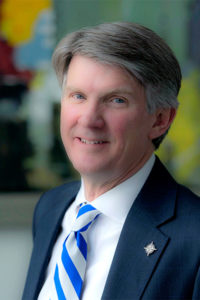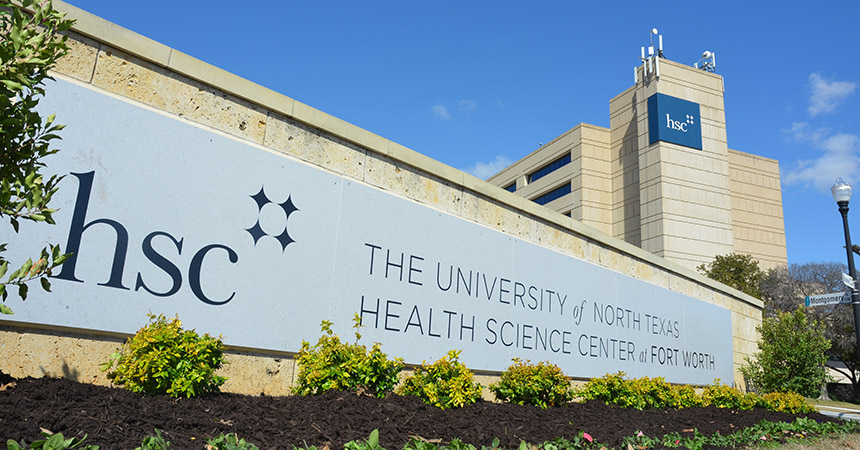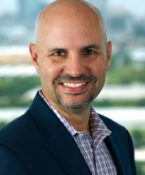HSC recognized as most productive medical school for innovation impact by George W. Bush Institute
By Alex Branch
The University of North Texas Health Science Center at Fort Worth (HSC) is more productive at impacting the economy and society through innovation than any other U.S. medical school, according to a report by the George W. Bush Institute and Opus Faveo Innovation Development.
The report ranked universities and research institutions in categories by size and focus, such as medicine and research. HSC, where ground-breaking innovations with the potential to transform the treatment of Alzheimer’s disease, cancer and retinal blindness are under development, was the top-ranked medical school.
In the report, the HSC is ranked first among pure U.S. medical schools for innovation impact productivity. Innovation impact productivity is a measure of how well an institution converts research inputs, such as research spending, into patents, licenses, startups, widely cited papers, and graduates.
Alzheimer’s Research
First-of-its-kind research is underway at HSC to detect Alzheimer’s disease earlier and develop new treatments. We need your support to make it happen.
HSC President Dr. Michael Williams called the recognition a result of the university’s deliberate commitment in recent years to foster the thinking, planning and execution necessary to drive innovation among faculty, staff and students.

“Now more than ever innovation and entrepreneurship are vital skillsets for future health care providers to thrive in this changing health care environment,” Dr. Williams said. “The recognition is a testament to the innovative mindset we are cultivating at HSC and our investment in an entrepreneurship ecosystem that moves new research discoveries from lab bench to bedside.”
Major research institutions are at the center of efforts to understand and combat COVID-19, the report stated. Institutions that build competitive research operations around life science, biotechnology and other vital STEM fields are an essential driver of America’s economic growth and pandemic recovery.
The report uses an Innovation Impact Index that differentiates itself by measuring productivity in turning research spending into overall innovation output, the report stated.
“Our research demonstrates that innovation impact productivity is not necessarily tied to the biggest or best-known schools,” said Christian Blackwell, co-author and Managing Director of Opus Faveo Venture Development. “By focusing on productivity, even smaller universities can have a large impact. Moreover, institutions of all sizes could achieve very significant increases in impact by moving towards the productivity levels of high-performing peers.”
HSC has developed and licensed new technologies that could change the way we think about and treat some of the most pressing health issues. For example, technology that utilizes a blood-test based biomarker to screen elderly patients in a primary care setting to detect Alzheimer’s Disease or early cognitive loss has been exclusively licensed by HSC to Cx Precision Medicine, Inc., a Fort Worth startup firm, for development and commercialization.
HSC also has licensed cancer drug treatment technology that uses nanoparticles to specifically target cancer cells while sparing healthy cells, and a novel methodology and treatment process that could restore vision to patients with macular degeneration through the engineering of a patient’s own skin cells into photoreceptor-like cells that can be transplanted into the retina.
Outside the laboratory, HSC has taken a leadership role in Fort Worth to spark innovation and entrepreneurship, launching the Innovate Fort Worth podcast, teaming up with Fort Worth venture capital firm Bios Partners to create an Entrepreneur-in-Residence program to assist the University with technology commercialization and entrepreneurship, and partnering to restart Global Entrepreneurship Week in Fort Worth.





Social media